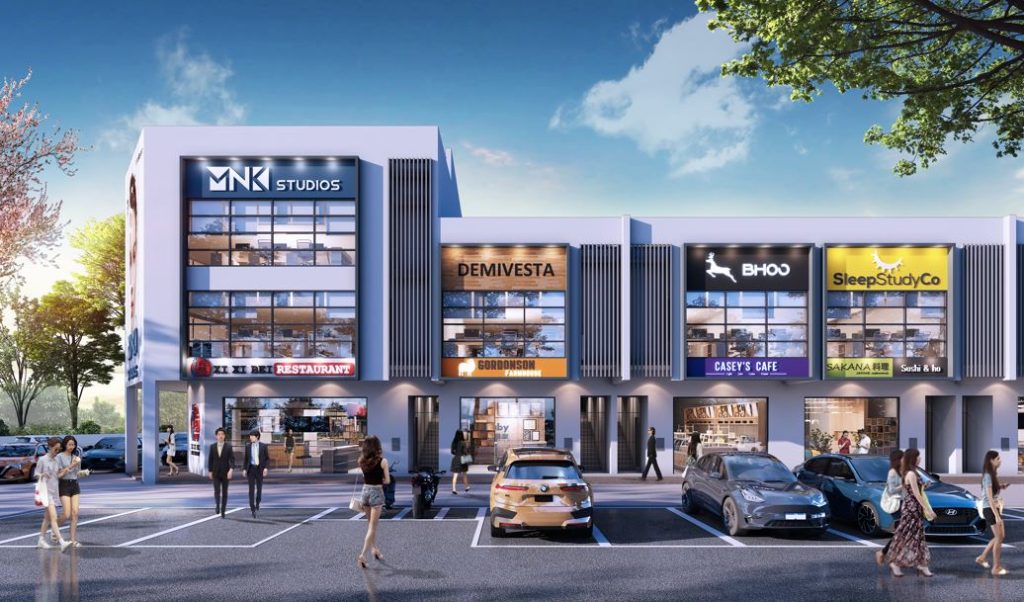23% allocation on development expenditure
By Joseph Wong
Budget 2024 was initially met with disappointment in the property industry, as it appeared to overlook many specific concerns, especially those highlighted in StarProperty's dedicated Budget 2024 pullout last month.
The Royal Institution of Surveyors Malaysia (RISM) and other property organisations, while being supportive of the government, voiced that the Budget was regretfully lacklustre towards the industry and failed to address the oversupply and the rising property development costs.
The Malaysian Institute of Estate Agents (MIEA) and several other property stakeholders were also somewhat disappointed with the lack of direct allocation towards the sector as well as having nothing for the M40.
These concerns, among others, had been brought to the forefront through that StarProperty Budget 2024 round table that gathered feedback from over 40 property developers and discussions with 10 prominent figures in the industry, in addition to representation from key associations like the Real Estate and Housing Developers Association (Rehda), Sabah Housing And Real Estate Developers Association (Shareda), and Sarawak Housing and Real Estate Developers' Association (Sheda).
However, upon closer examination, it became evident that Budget 2024 had addressed several key areas, albeit in a more comprehensive manner rather than focusing narrowly on specific pain points highlighted in the pullout.
One of the most significant aspects of Budget 2024 is its primary goal of optimising subsidies, allowing for the allocation of funds towards development expenditure. Out of the total RM393.8bil allocation, a considerable 77% was directed towards the nation's operating expenditure, while an impressive 23%, equivalent to RM90bil, was earmarked for development expenditure.
This RM90bil allocation is expected to facilitate the construction of high-quality infrastructure and support the country's path toward achieving developed nation status. It also opens doors for property developers to engage in large-scale projects with a reduced risk profile.
While Budget 2024 may not have addressed all the specific concerns initially raised by the property industry, it has laid the groundwork for substantial developments, offering opportunities for growth and economic progress. This holistic approach indicates the government's commitment to fostering a more robust and sustainable property sector.
Five areas that affect the real estate industry were identified and they are as follows:
Improving investment climate
To build a wider ecosystem for the electric and electronic (E&E) cluster in the northern region, the government will open a high-tech industrial area in Kerian, North Perak, said JLL Malaysia research and consultancy head Yulia Nikulicheva.
This will trigger the need for more housing to facilitate the workers. Moreover, the responsibilities of the Ministry of International Trade and Industry (MITI) and Malaysian Investment Development Authority (MIDA) are no longer limited to only the approval of investment incentives but are expanded to facilitate issues related to investment beginning from the application until the investment is realised, she said.
This initiative is aimed at bringing more multinational corporations (MNCs) into the country. It is likely to have a strong positive impact in the medium term for the office, industrial and logistics markets. After the government adopts new policies and mechanisms, it would require some time for newcomers to make the decision to enter the country. The on-going supply chain disruptions and uncertainties surrounding China may accelerate decision-making as many MNCs in the manufacturing segment are considering Southeast Asia for implementation of the China + One hub concept. Malaysia is ranked highly by these companies. This also translates into housing needs to cater for expatriates (expats) which could also result in more Malaysia My Second Home (MM2H) applications. The government has indicated that it would look into the issues pertaining to the MM2H shortcomings. Such matters were also highlighted in the StarProperty Budget 2024 round table.
Moreover, to achieve this goal, the economic structure needs to be restructured and reorganised so that existing potentials can be harnessed. The New Industrial Master Plan (NIMP) 2030 targets a total investment of up to RM95bil while involving 3.3 million job opportunities with median salaries of up to RM4,510 per month by 2030. This may benefit the manufacturing sector greatly.
Considering that the contribution of the manufacturing industry has remained below 25% of GDP, to curb this problem, future investment priorities are focused on High Growth High Value (HGHV) industries. This may spur the industrial and logistics market in Malaysia considering that such industries typically have some component of high-tech manufacturing involved. As such, we see this proposal greatly benefiting the industrial and logistics market in the Northern region where most HGHV industries are currently situated.
Internationalisation of startups
Government-linked companies (GLCs) and government-linked investment companies (GLICs) are poised to inject a substantial sum of up to RM1.5bil into bolstering the startup ecosystem. This initiative aims to encourage the participation of bumiputera small and medium-sized entrepreneurs in high-growth, high-value (HGHV) sectors, such as the digital economy, space technology and E&E, explained Nikulicheva.
Startups play an indispensable role in driving the country's economic adaptation and transformation. With Malaysia's ambitious objective of establishing Kuala Lumpur as the leading hub for the digital industry and startups in the Southeast Asian region, expediting the proliferation of startups is paramount. This acceleration is not only set to stimulate innovation within the economy but also holds the potential to catalyse the growth of HGHV industries in real estate, consequently triggering a significant overhaul in the industrial and logistics markets. Moreover, the rise of startups may alleviate the persistent office market oversupply that has plagued the sector for an extended period
Infrastructure gets a boost
Infrastructure receives a significant boost as part of ongoing efforts to address the rising number of vehicles on the road. The expansion project of the North-South Expressway (PLUS) is now extended from four to six lanes, spanning the stretch from Sedenak to Simpang Renggam, with an investment of RM931mil.
A robust road network plays a pivotal role in facilitating efficient population movement, streamlining trade activities, and bolstering the local economy. It greatly enhances mobility, offering convenient access to various areas, reducing travel time, and ultimately increasing productivity. Furthermore, a well-developed road network empowers traders and businesses by enabling the swift transportation of goods and services, expanding market reach, and meeting consumer demand with efficiency.
In addition to these benefits, a well-connected road infrastructure attracts investments, drives economic growth, and fosters regional development. By bridging connectivity gaps and opening up new market opportunities, it paves the way for increased tourism and generates employment, thus enhancing communities and fostering overall socio-economic progress. In summary, a comprehensive road network serves as a vital catalyst for societal advancement, enriching mobility, trade, and economic prosperity.
The government has agreed to resume the previous proposal to construct five light rail transit line 3 (LRT3) stations that were previously cancelled. These stations are Tropicana, Raja Muda, Temasya, Bukit Raja and Bandar Botanik. The retention of these stations is expected to complement and enhance the public transportation network in the Klang Valley, benefiting around two million residents, with a cost of RM4.7bil.

RM460mil was allocated to aid 65,000 impoverished rural residents for the construction of new homes or the renovation of their existing dilapidated houses.
The LRT benefits the country by providing efficient mobility, reducing environmental impact, increasing accessibility, driving economic growth, ensuring safety and reliability and reducing dependency on cars. While discussions during the round table involved environmental, social and governance (ESG) matters pertaining to property construction, the upgrading of mass public transportation like the LRT3 would add to reducing the carbon footprint especially when Tenaga Nasional Bhd (TNB) shifts to greater renewable energy sources.
Further, the additional stations could also spark new township developments located close to each station. In a similar vein, developers might be inspired to build more affordable transport-oriented developments (TODs) to cater to the M40 segment.
East Malaysia given more attention
Special attention was given to East Malaysia during the round table and StarProperty is pleased that the government had taken heed of this. The federal allocation for the development of Sarawak will increase to RM5.8bil from RM5.6bil. Meanwhile, for Sabah, the allocation will increase to RM6.6bil compared to RM6.5bil. To increase the effectiveness of the allocation, the federal government has also delegated the authority to implement development projects valued under RM50mil to technical agencies in Sabah and Sarawak.
This may entice investors to start considering Sabah and Sarawak as potential expansion locations in light of the China + One strategy. Current flows of capital typically end up in Johor, Kuala Lumpur, Selangor and Penang. There is a lot of potential within Sabah and Sarawak that hasn’t been explored yet. With this mandate, the hope is that more investors may become more willing to explore opportunities within those states.
Moreover, after nearly 60 years of waiting, Sarawakians might finally see the completion of the Sarawak Pan Borneo Highway, which is expected to be fully completed next year. In addition, the tender process for the 19 packages of work for Phase 1b of the Pan Borneo Sabah project, spanning 366km with a cost of RM15.7bil, will be completed by November of this year.
The Sarawak-Sabah Link Road (SSLR) Phase 2 project, spanning over 320km, involving a cost of nearly RM7.4bil, will also commence at the end of this year.
Implementation of public housing projects
- A special guarantee fund of RM1bil has been allocated to encourage reputable developers to revive identified stalled projects.
- A total of RM546mil is allocated for continuing the implementation of 36 Program Perumahan Rakyat (PPR), including a new project in Kluang, Johor. 14 Program Rumah Mesra Rakyat continued to be constructed with 3,500 housing units with an allocation of RM358mil.
- The government has allocated RM460mil to aid approximately 65,000 impoverished rural residents for the construction of new homes or the renovation of their existing dilapidated houses.
- A sum of RM100mil is allocated for the maintenance of low- and medium-cost public and private strata housing projects throughout the country.
The government has taken steps to fulfil every citizen's aspiration of owning an affordable and comfortable home. This year, a dedicated team under KPKT has been established to tackle the problems associated with delayed, sick, and abandoned private housing projects, which have placed a burden on homebuyers. As of August 2023, 256 dilapidated projects, comprising more than 28,000 housing units with a gross development value of RM23.37bil, have been successfully revitalised and restored.
KPKT Minister Nga Kor Ming on Oct 27, 2023 also announced that the ministry is exploring the introduction of incentives for the build-then-sell concept in local residential developments as part of an effort to further reduce the number of abandoned and unfinished projects in Malaysia. This shows that the government is serious in helping the property sector.
And finally, pointing out the Budget 2024 round table was a good initiative by StarProperty, Nga expressed KPKT’s interest in participating in the next round table for greater engagement with stakeholders. “Send us an invitation for the next one,” he told StarProperty.
Stay ahead of the crowd and enjoy fresh insights on real estate, property development, and lifestyle trends when you subscribe to our newsletter and follow us on social media.












































